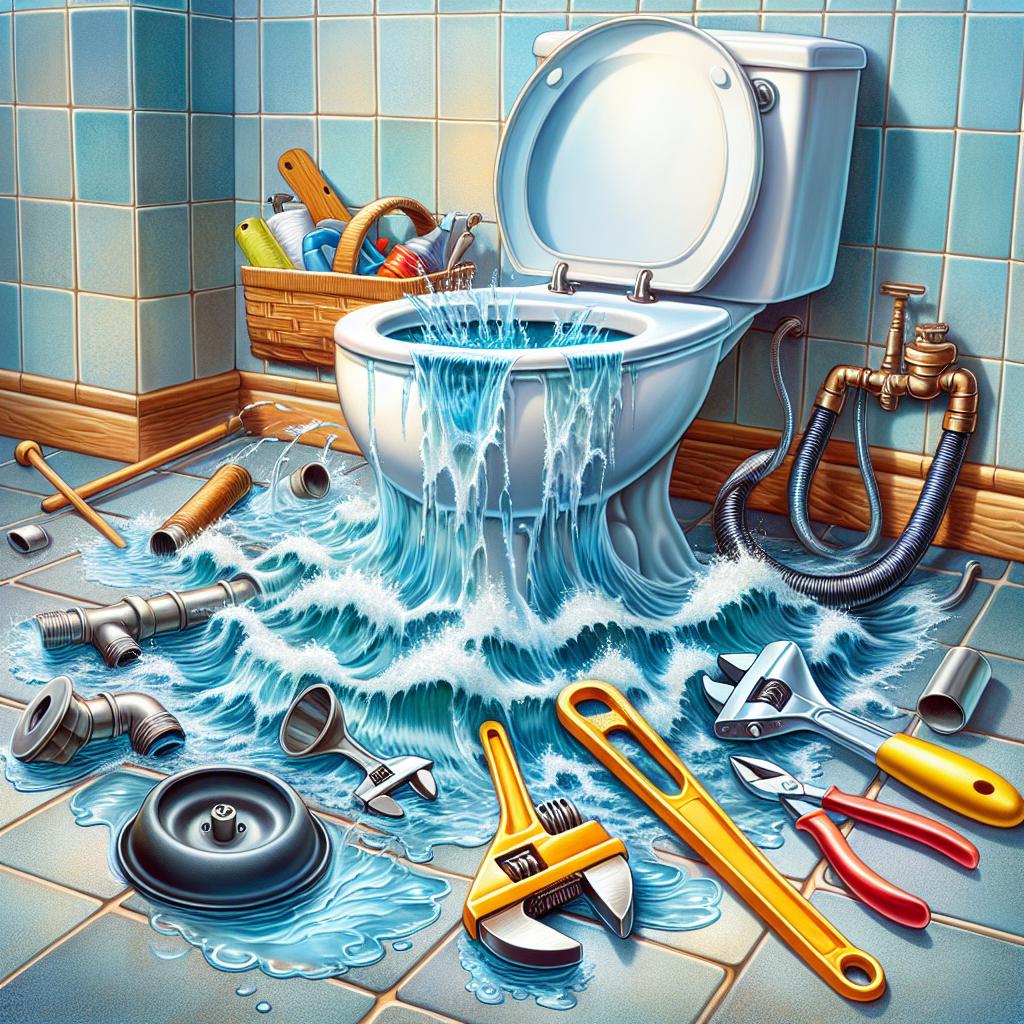Flushed Away: Common Plumbing Blunders and How to Evade Them
Plumbing is the integral circulatory system of a home. It’s the way we get clean, filtered water for drinking, cooking, and bathing, and how we get rid of our waste. In essence, it’s crucial in keeping the house ticking, like a well-oiled machine. However, with all of man’s ingenious contrivances, there’s scope for glitches.
Whether it’s an overflowing toilet, a leaking faucet or a clogged drain, we’ve all faced common plumbing blunders at some point. Often, these predicaments are caused by poor maintenance habits, but sometimes, the real culprit is none other than a lack of understanding about how our plumbing systems work.
Unraveling the Industry Secrets: The Most Common Plumbing Fiascos
While some plumbing grievances may require the expertise of a professional, understanding the most common blunders can help you avoid these ordeals or, at the very least, mitigate the damage. Let’s plunge into the key issues:
1. Clogged Drains
One of the most common and frustrating plumbing issues homeowners face is clogged drains. From hair to food particles, soaps, and errant toys, numerous things can accumulate over time, slow down the flow or completely halt it. Unfortunately, a crippled drain spells disaster—leading to overflow, water damage, or even potentially raw sewage backup.
Handheld drain snakes, plungers, or homemade solutions like a mixture of vinegar and baking soda, can alleviate minor blockages. However, persistent or severe clogs can warrant professional intervention.
2. Dripping Faucets
Drip. Drip. Drip. The monotonous, incessant drip of a faulty faucet is irritating and wasteful. Each drop contributes to an increase in your water bill and is an unnecessary strain on our already stretched water resources. More often than not, a persistent drip is due to an internal washer that has become stiff, worn, or dislodged over time. Thankfully, in many instances, this is an issue you can fix yourself with a few essential tools and a bit of patience.
3. Running Toilets
Did you know that a running toilet can waste up to 200 gallons of water per day? Not only is this an ecological catastrophe, but it also puts your budget down the drain. Usually, it’s due to a faulty flapper valve that controls the water that passes from the tank to the bowl. However, other causes could be improper float height or a fill tube issue. Identifying the underlying cause and remedying it swiftly can save you a maelstrom of water wastage issues.
4. Low Water Pressure
An exhilarating shower can quickly turn frustrating when the water merely dribbles out of the showerhead. Often, low water pressure is a sign of more significant problems like blockages, pipe corrosion, or hidden leaks that lead to water wastage. Solutions range from cleaning aerators, adjusting water pressure regulators, to professional pipe replacement. Don’t let a lackluster shower dampen your day; get to the root of the problem quickly to restore harmony.
Steering Clear of Plumbing Pitfalls: Curative Steps to Evade Harrow
While the above-listed issues are prevalent, knowing how to proactively maintain and care for your plumbing system can help you avoid these troublesome blunders. Below are some actionable tips:
1. Do Not Overlook Leaks
A minor leak may seem harmless, but left untreated, it can lead to significant issues such as structural damage, mould growth, and costly water damage. Thus, avoid overlooking leaks—repair them immediately or seek professional help.
2. Regularly Inspect Your Plumbing System
Routine inspection of your plumbing system can help you spot potential issues such as worn-out hardware, dripping faucets, running toilets or slow drains. By catching these early, you not only prevent inconvenient breakdowns but also prolong the lifespan of your plumbing system.
3. Avoid Harsh Chemicals
While it can be tempting to resort to harsh chemical drain cleaners to manage clogs, these can corrode your pipes over time. Instead, consider using natural cleaning alternatives or go old school with a good old plunger.
4. Be Mindful of What Goes Down Your Drain
One of the easiest ways to prevent clogs is to be mindful of what you’re putting down your drains. For instance, avoid disposing of grease or oil down your drain as it can solidify and block the pipes. Similarly, non-dissolvable items such as wipes, sanitary products, or hair don’t belong in the drains.
Turning Tides: It’s Your Turn
In a nutshell, your home’s plumbing system is a complex and vital component that requires prudent care and maintenance. By understanding common plumbing blunders and knowing how to evade them, you can save yourself from unnecessary stress, costly repairs, and more importantly, sustainably manage our precious water resources.
Remember, if a problem seems too overwhelming, it’s always best to call in the professionals. Some battles are better left to the experts.




